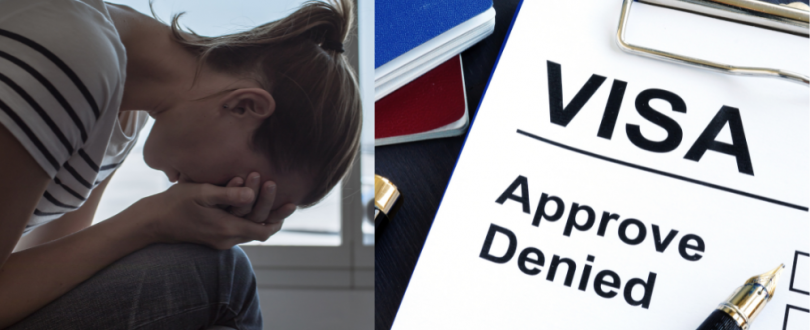
Overcoming U.S. Visa Application Delays: Practical Tips & Effective Strategies.
Traveling to a new country can be an exciting venture, but the process of acquiring a visa often comes with its challenges, especially when facing unexpected delays. Understanding these delays and knowing how to navigate through them effectively can make a significant difference. This guide provides tips and strategies for travelers encountering delays in their visa application process.
Identifying Common Causes of Delays
Visa application delays can be caused by a range of issues, and identifying these is the first step in addressing them. Common causes include:
High Volume of Applications: Embassies and consulates often experience peak periods, leading to longer processing times.
Incomplete or Incorrect Applications: Missing documents or errors in your application can cause significant delays.
Extended Security Checks: Some applications may require additional security checks based on the applicant’s country of origin, travel history, or other factors.
Technical Issues: System outages or technical problems can slow down the processing of applications.
Policy Changes: Sudden changes in visa policies or procedures can also contribute to delays.
Understanding these potential issues can help you better prepare for and respond to any delays in your visa application process.
Proactive Measures to Prevent Delays
To minimize the risk of experiencing delays in your visa application, consider the following proactive steps:
– Apply Early: Submit your visa application well before your planned travel date to allow ample time for processing.
– Ensure Accuracy and Completeness: Double-check your application for accuracy and completeness to avoid delays due to missing or incorrect information.
– Stay Informed: Keep up-to-date with any changes in visa regulations or processing times for your destination country.
– Prepare for Security Checks: If you come from a country or have a background that might warrant additional security checks, be prepared for a longer waiting period.
Taking these proactive steps can significantly reduce the chances of encountering delays in your visa application process.
Navigating the Waiting Period
The period of waiting for a visa decision can be stressful, but there are ways to navigate this time effectively:
1. Regular Follow-Up: Maintain contact with the embassy or consulate to check the status of your application.
2. Be Patient: Understand that visa processing times can vary and some delays are normal.
3. Avoid Fixed Travel Plans: It’s advisable not to book flights or make non-refundable travel arrangements until your visa is approved.
Managing your expectations and being prepared for a wait can make this period less stressful.
Handling Requests for Additional Information
If you are asked to provide more information:
Respond promptly: Quick responses can help speed up the process.
Provide accurate and complete information: Ensure that the additional information you provide is thorough and accurate to prevent further delays.
Legal Recourse and Assistance
When faced with significant visa application delays, understanding your legal options is crucial:
Consult an Immigration Lawyer: A lawyer specializing in immigration law can guide your case and inform you of any legal recourses available.
Contact Local Representatives: In some cases, reaching out to your local representatives or embassy officials can help expedite the process.
Visa Ombudsman Inquiry: Some countries have a visa ombudsman or a similar entity where you can raise your concerns about delays.
Understand Your Rights: Familiarize yourself with the rights and processes of visa applications for your specific country.
Having access to legal advice and assistance can provide a clearer path forward if you’re experiencing prolonged delays.
Managing Stress and Expectations
Dealing with visa application delays can be a significant source of stress. Here are some strategies to manage it:
Stay Informed: Knowledge about the process can reduce anxiety. Keep yourself updated on normal processing times and what to expect.
Plan for Contingencies: Have a backup plan in case your travel gets delayed. This can include adjusting your travel dates or making alternate arrangements.
Mindfulness and Relaxation: Practices like meditation, yoga, or simply engaging in hobbies can help keep stress at bay.
Seek Support: Don’t hesitate to share your concerns with friends, family, or support groups who can offer emotional support.
Managing your stress and keeping realistic expectations can help you navigate the period of uncertainty more comfortably.
Planning for the Worst-Case Scenario
While nobody wants to think about their visa application being delayed indefinitely or denied, it’s wise to plan for these possibilities:
1. Alternate Travel Plans: Consider other destinations that may have more straightforward visa processes or where you might not need a visa.
2. Explore Other Visa Categories: If your visa is delayed or denied, research if there are other visa categories you might qualify for.
3. Consider Delaying Your Trip: If possible, be prepared to postpone your trip until your visa issues are resolved.
4. Refundable Bookings: Make travel and accommodation bookings that are refundable or can be rescheduled.
While visa application delays can be frustrating, understanding the common causes and knowing how to deal with them effectively can ease the process. By being proactive, responsive, and well-informed, you can navigate these challenges more smoothly. Remember, patience and persistence are key to overcoming the hurdles of visa application delays. Safe travels!

